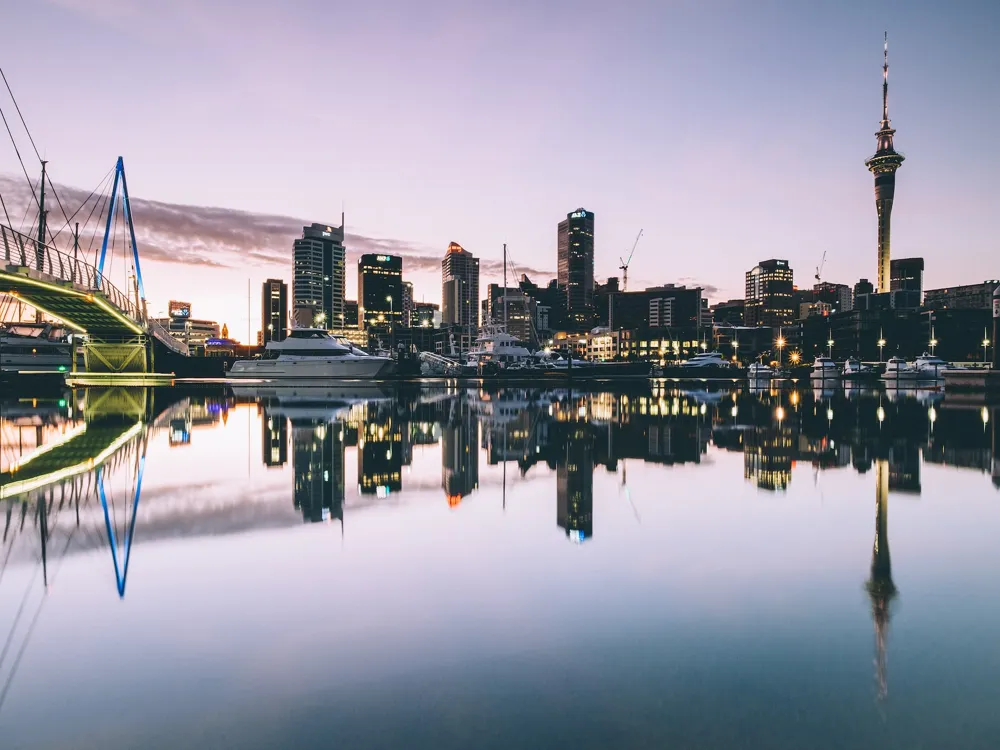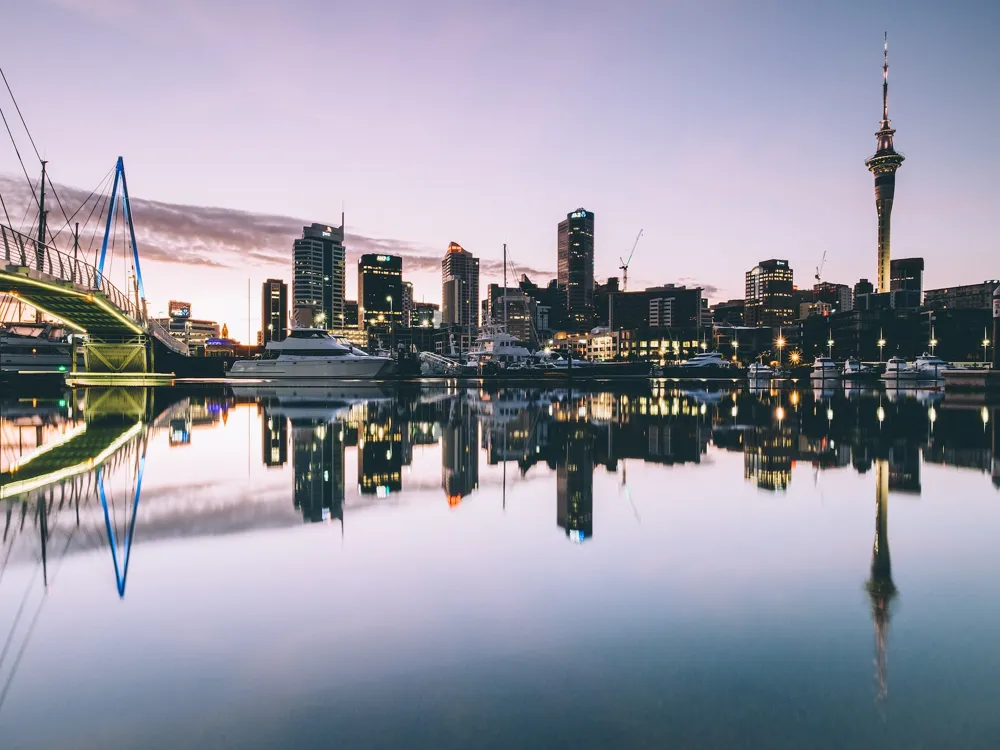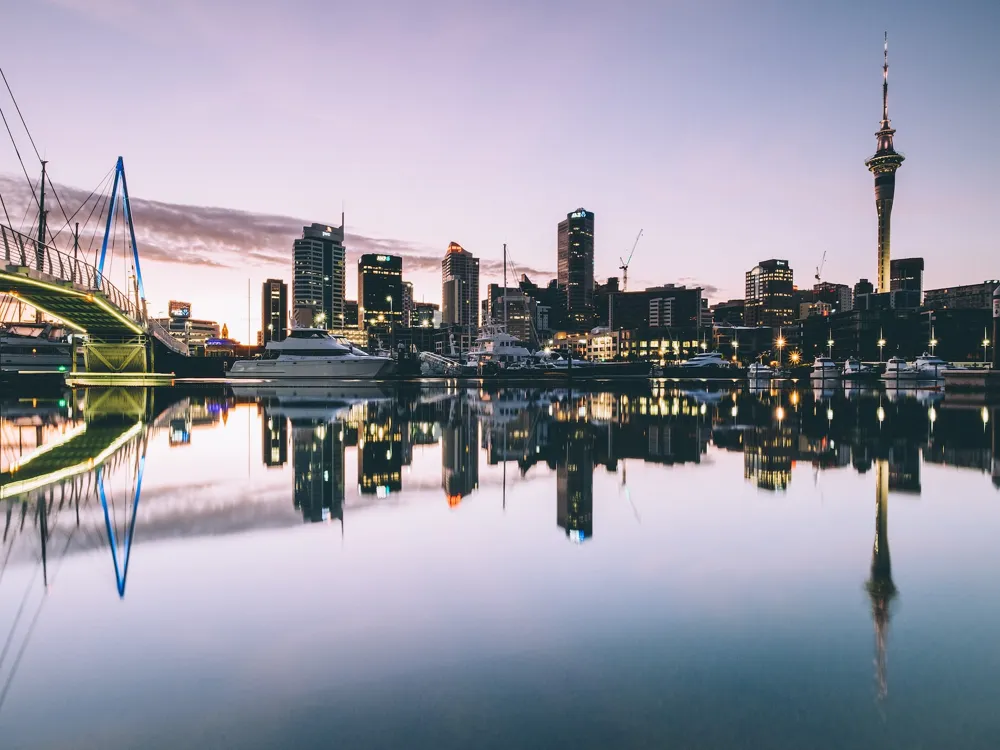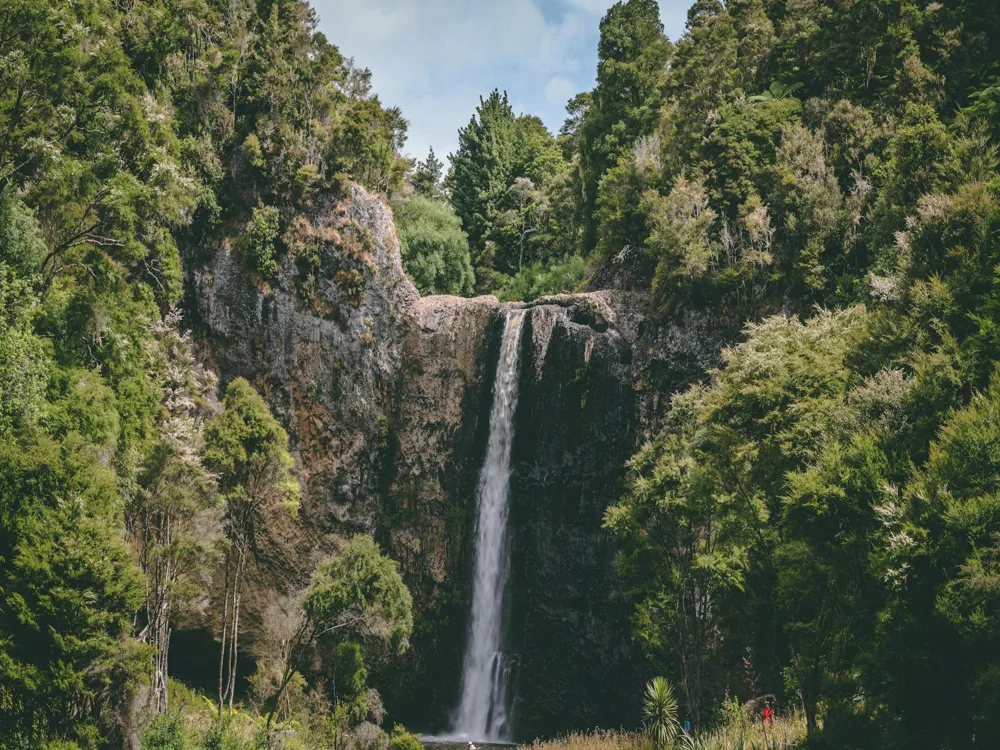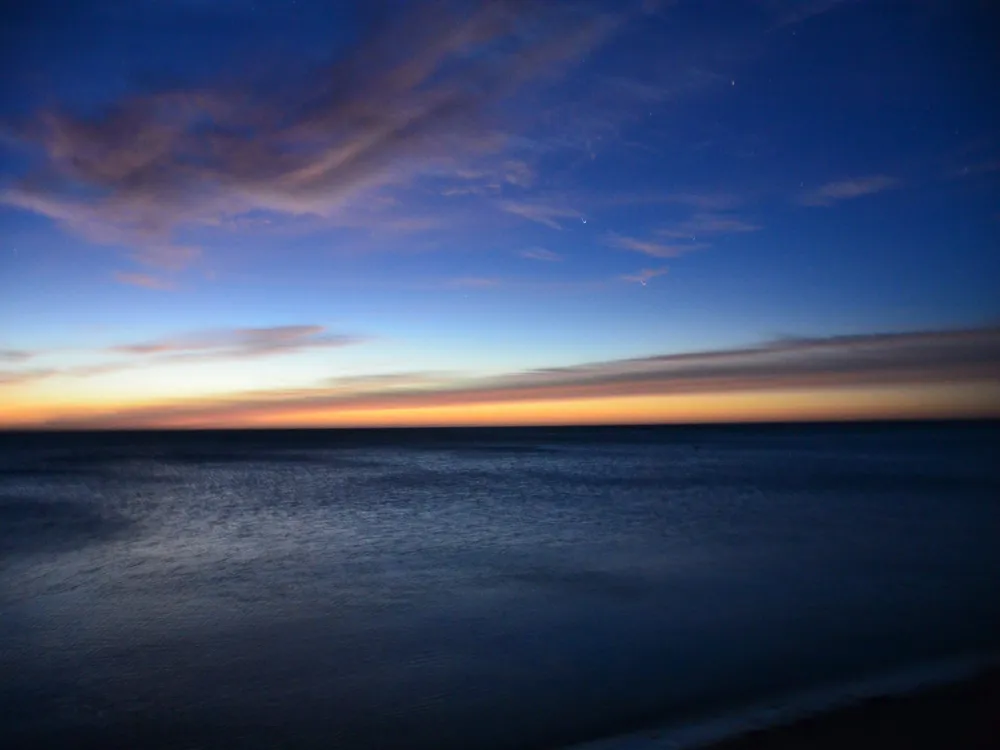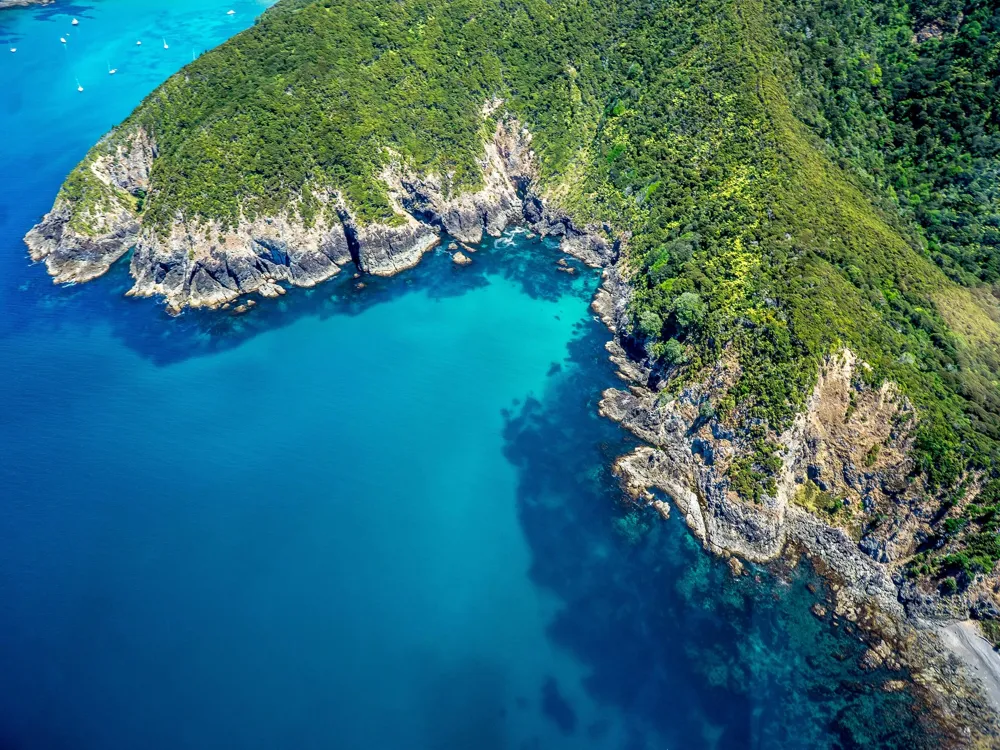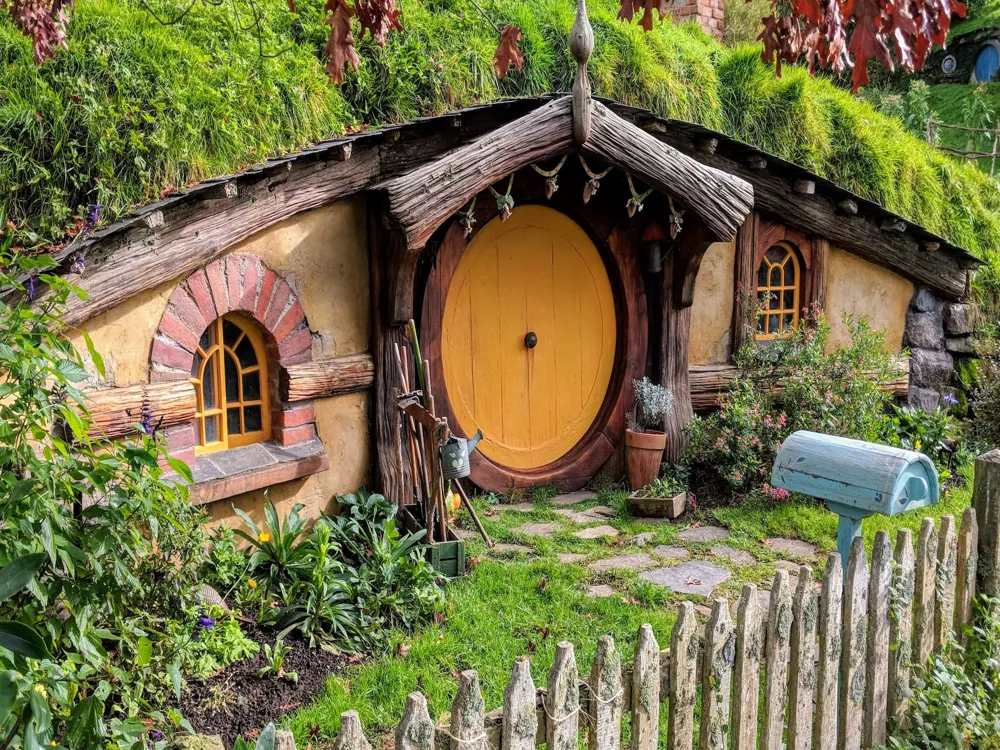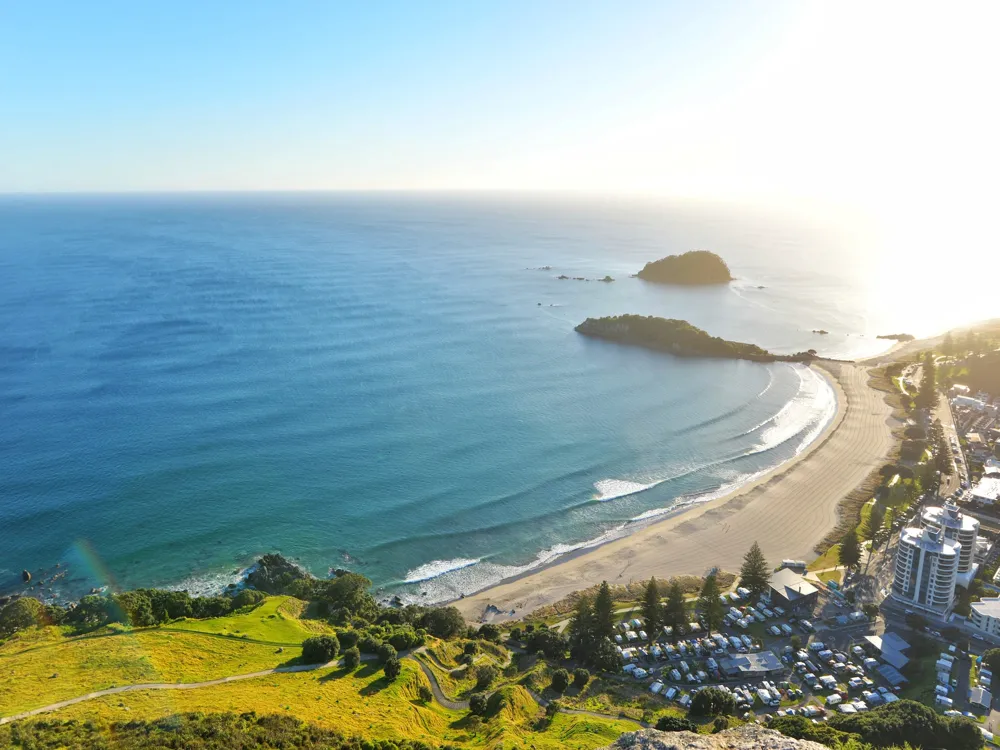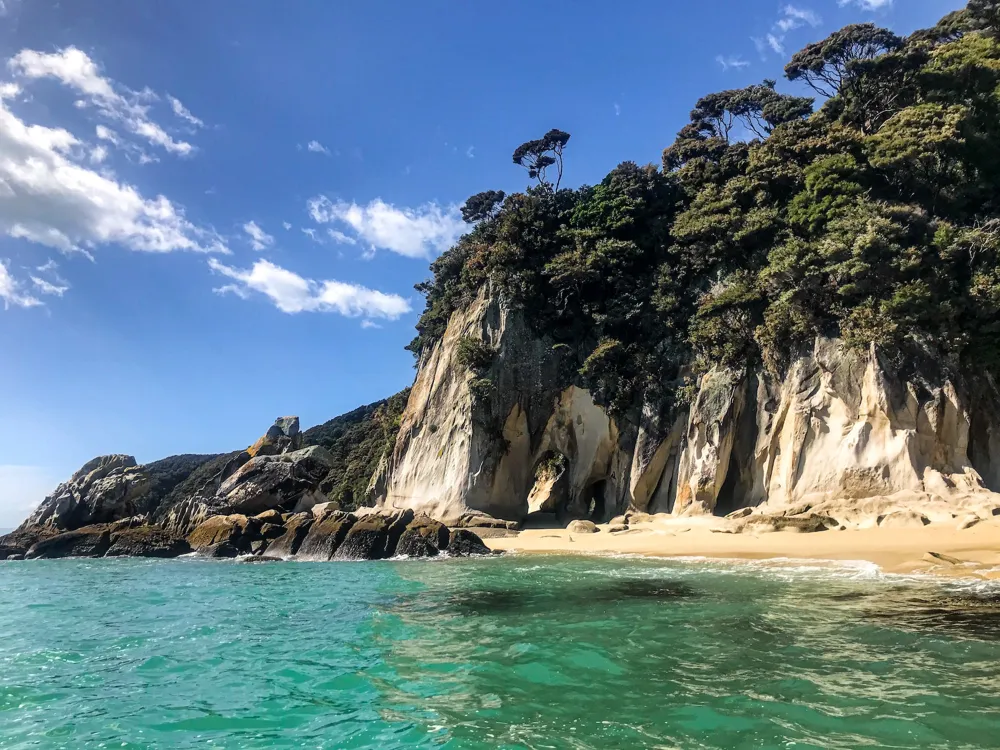Auckland, New Zealand's largest city, is an enchanting blend of urban sophistication and natural beauty. Known as the 'City of Sails,' Auckland is nestled between two major harbors, embracing its maritime identity. The city's diverse population contributes to a vibrant culture, evident in its cuisine, music, art, and festivals. Auckland's landscape is dotted with extinct volcanic cones, offering panoramic views and green spaces within the urban area. The city's history stretches back to the Maori people, who named it Tāmaki Makaurau, a maiden desired by a hundred lovers for its fertile grounds and strategic location. European settlers arrived in the 19th century, transforming the area into a colonial port. Today, Auckland's rich history is visible in its architecture, museums, and cultural sites. The city's economy is thriving, with strengths in finance, commerce, and tourism. Auckland consistently ranks high in global livability surveys, thanks to its quality of life, education, and health services. For nature enthusiasts, Auckland offers easy access to stunning beaches, hiking trails, and a cluster of picturesque islands in the Hauraki Gulf. The city's mild climate makes outdoor activities enjoyable year-round. Auckland's culinary scene is a testament to its multiculturalism, with a wide array of international and local cuisines. The city is also the gateway to the rest of New Zealand, providing a perfect starting point for exploring the breathtaking landscapes of both the North and South Islands. Auckland's architecture is a fascinating mix of old and new, reflecting its growth and diverse cultural influences over the years. The city's skyline is dominated by the Sky Tower, the tallest freestanding structure in the Southern Hemisphere, offering stunning views of the city and beyond. Historical buildings, such as the Auckland Town Hall and the Ferry Building, showcase British colonial architecture with their intricate designs and craftsmanship. The city also has significant Maori and Pacific architectural influences. Marae (Maori meeting grounds) and other indigenous designs are integral parts of Auckland's architectural tapestry, adding a unique cultural dimension to its urban landscape. Modern architecture in Auckland is characterized by its innovative use of materials and sustainable design practices, reflecting New Zealand's commitment to environmental conservation. Notable contemporary structures include the Auckland Art Gallery Toi o Tāmaki, which blends historical and modern architectural elements, and the Viaduct Harbour area, which has been transformed into a trendy waterfront precinct with upscale apartments, restaurants, and maritime facilities. Auckland's residential architecture varies from classic Victorian homes to modernist 20th-century houses and cutting-edge contemporary designs, mirroring the city's evolution and diverse communities. Auckland is a year-round destination, but the best time to visit is during the summer months (December to February) when the weather is warm and sunny, ideal for outdoor activities and exploring the beaches. However, this is also peak tourist season, so plan and book accommodations in advance. Shoulder seasons (spring and autumn) are less crowded and offer mild weather, suitable for hiking and sightseeing. Auckland has a comprehensive public transport system, including buses, trains, and ferries, making it easy to navigate the city. The AT HOP card, a reusable prepay smart card, is the most convenient and cost-effective way to use public transport. For more flexibility, consider renting a car, especially if you plan to explore areas outside the city. Understanding and respecting Maori culture and traditions is important when visiting Auckland. When entering a Marae, it's customary to participate in a Powhiri (welcome ceremony). It's also polite to ask for permission before taking photos of people or culturally significant sites. Kiwis are known for their friendliness and informal demeanor but remember to be courteous and respectful in all interactions. Auckland's culinary scene is diverse, offering everything from high-end restaurants to casual cafes and street food. Don't miss trying local specialties like New Zealand lamb, seafood, and traditional Maori hangi. Exploring the city's various food markets and international eateries is also a must. Remember, tipping is not customary in New Zealand but is appreciated for exceptional service. Auckland is well-connected globally, primarily through the Auckland International Airport, which serves numerous international and domestic flights. The airport is located near the city center and is easily accessible by bus, taxi, or shuttle services. For those traveling from within New Zealand, Auckland is also reachable by road, with well-maintained highways connecting it to other major cities. Intercity buses and trains offer comfortable and scenic travel options. For a unique experience, consider taking a ferry from nearby regions, providing a picturesque approach to the city. Read More:Overview of Auckland
Architecture of Auckland
Tips When Visiting Auckland
Best Time to Visit
Transportation Tips
Cultural Etiquette
Food and Dining
How to Reach Auckland
Muriwai Beach
Auckland
₹ 72,000 onwards
View auckland Packages
Weather :
Tags : Beach
Time Required : Summer
Planning a Trip? Ask Your Question
Auckland Travel Packages
View All Packages For Auckland
Top Hotel Collections for Auckland

Private Pool

Luxury Hotels

5-Star Hotels

Pet Friendly
Top Hotels Near Auckland
Other Top Ranking Places In Auckland
View All Places To Visit In auckland
View auckland Packages
Weather :
Tags : Beach
Time Required : Summer
Planning a Trip? Ask Your Question
Auckland Travel Packages
View All Packages For Auckland
Top Hotel Collections for Auckland

Private Pool

Luxury Hotels

5-Star Hotels

Pet Friendly







